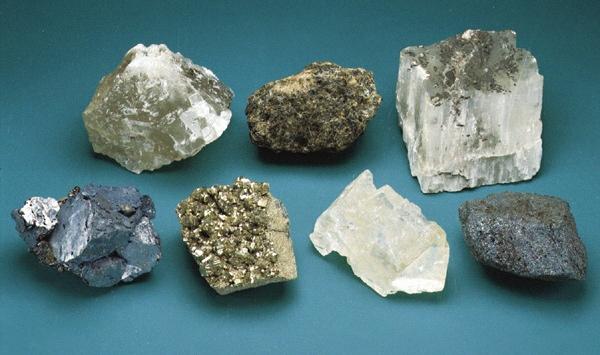An established and well managed solid minerals industry is a path for economic and social growth of Nigeria. The sector, has potentials of providing employments and improve national income earnings far exceeding the petroleum sector if well managed. Our reporter examines the progress, challenges and the ways forward.
Solid minerals industries are supposed to provide local raw materials for other industries and bring vital infrastructure and wealth to rural areas.
Before now, the earnings from solid minerals was used to develop roads, education, hospitals and in fact develop the petroleum industry.The decline of the solid minerals industry started with the discovery of oil to an extent that Nigeria became a mono product economy and vulnerable to international oil politics. The domineering role of oil did not allow past governments to attend to global challenges that evolved in the development of the solid minerals sector.
The neglect of the industry led to disorder in the minefield with strong presence of illegal miners whose activities are characterized by inefficient mining, illegal trading of highly priced minerals, severe ecological degradation, spread of diseases and huge loss of revenue to the government through smuggling.
An internal analysis in reaction to the global economic recession led to key policy review which was completed and endorsed at the middle of the 1990s for implementation. The policy review led to a number of important actions including the creation of the Ministry of Solid Minerals Development in 1995.
In stating the obvious, the ministry has appeared ineffective given the inadequate funds allocated to it in respective yearly budgets, as well as other factors militating against the development of this critical sector.
Minister of Solid Minerals Dr. Kayode Fayemi has identified limited infrastructure, insufficient geological data, weak institutional capacity, insufficient funding, illegal artisanal mining and limited cooperative federalism as key internal challenges being faced by the sector. Other mining stakeholders who corroborated Fayemi’s claims also identified weak mining laws which they say to a large degree still restricts private sector involvement.
Consequently, between the end of 2015 and now, stakeholders in the sector have made several commitments to see to the revitalization of this critical sector, which fortunately falls within the diversification agenda of President Muhammadu Buhari led administration.
Dr. Fayemi noted that based on the presidential promise by President Muhammadu Buhari to build a more diversified economy, the task of the Ministry of Solid Minerals Development will be to remove any and all obstacles to such growth. For the minister, getting the nation’s solid minerals sector back on track is already work in progress. As such, he highlighted some short term actions which the ministry will begin to embark upon.
Revenue Generation: Upgrading of the Mining Cadastre Office and the Mines Inspectorate Directorate- automation, efficient review of overlapping and inactive titles, guaranteeing the integrity of mining licenses, external audit of revenue receipts in the past years would be undertaken and the establishment of a Mines Police.
Formalizing artisanal and small scale miners: Strengthen the institutional support to artisanal and small scale miners for integrating them into the formal economy.
Geosciences: Review and conclude all open contracts for collecting geosciences data for projects that have been contracted and the collection flights flown, finalize payments and make these and other data available to investors.
Regulation: Work with stakeholders to review existing licenses and bring them up to date where there are issues; the goal here according to the minister is to get licensees who are sitting on the fence to have sufficient confidence to start investing real capital.
He has equally promised to finalize privatization exercise, invest in capacity building, engage non-state actors, ensure the formation of an investment and business support team as well as best interests of committed partners.
And to give all of these promises the needed bite, the minister had set up a 17 member committee to produce a 25 years action plan document for the transformation of the solid minerals sector. The document is to contain a short-term action plan of 24 months, mid-term plan of 10 years and long-term plan of 25 years.
President of the Miners Association of Nigeria Alhaji Sani Shehu in a recent interview with Daily Trust equally highlighted what the miner’s umbrella body is set to do to facilitate development in the sector.
According to Sani, the association is in partnership with foreign partners to develop an online marketing domain for Nigerian miners. This concept he said is geared towards making use of technology to effectively market Nigeria’s solid mineral resources.
As the nation grapples with falling oil prices and high cost of importation occasioned by the foreign exchange rate, there is no better time for the nation to leverage on the potentials inherent in the solid minerals sector. Also, the admission by the Minister of Solid Minerals recently that heavy dependence on oil earnings is not only a financial risk but a strategic challenge for social stability, it is hoped that the Muhammadu Buhari- led administration will bring to fruition the resuscitation of the nation’s solid minerals industry.

